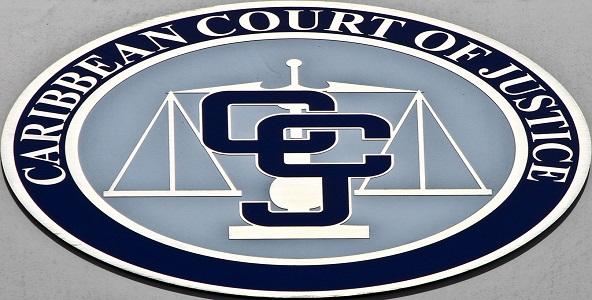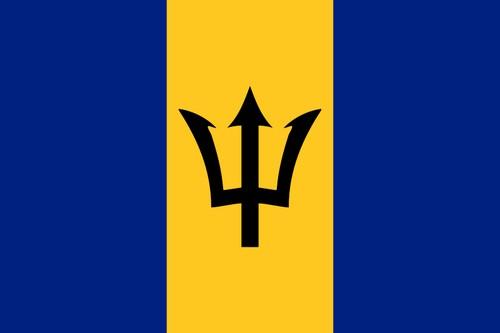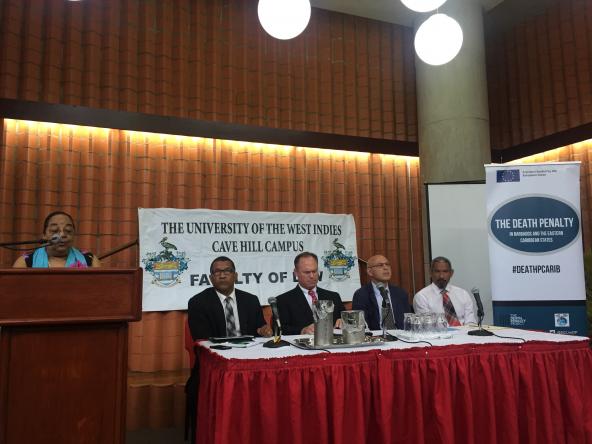
Caribbean Court of Justice strikes down mandatory death penalty in Barbados
Caribbean
Good news
The two appellants, Jabari Nervais and Dwayne Severin, had both been convicted of murder and have spent four and six years on death row respectively. As with all persons convicted of murder in Barbados, their death sentences were imposed automatically without any consideration of the mitigating factors in their cases or their individual circumstances.
In its judgment the CCJ accepted that not everyone convicted of murder deserves to be executed and the courts should be allowed to consider each case separately. It ruled that the mandatory death sentence breached the appellants’ right to life, their right to a fair trial and amounted to inhuman and degrading treatment because the appellants were not allowed to persuade a judge to impose a sentence other than death.
The Court also found that parliament was wrong to legislate for an automatic death sentence because under the Constitution of Barbados the selection of punishment must be exclusively performed by the courts. A mandatory sentence “reduces the court’s sentencing role to ‘rubber-stamping’ the dictates of the Legislature”, the Court said.
The Death Penalty Project has been challenging Barbados’ use of the mandatory death penalty on human rights grounds in legal appeals dating back to 2004, and worked closely with the Barbados legal team in this case. The CCJ’s decision overturns an earlier ruling by the Judicial Committee of the Privy Council (JCPC) in Boyce & Joseph [2004]. In this case, the majority of the Court, accepted that a mandatory death sentence was a cruel and inhuman punishment, but considered themselves obliged to uphold the penalty because of a specific ‘savings clause’ in the Barbados’ constitution which made the sentence immune from challenge.
By contrast, the Caribbean Court said that savings clauses should be condemned and laws should not be “calcified to reflect the colonial times”. Protection for human rights develops over time and a literal interpretation of the savings clause would deprive citizens of Barbados from benefiting from evolving fundamental rights and freedoms.
In addition, the Inter American Court of Human Rights has twice found Barbados’ use of the mandatory death penalty to violate its obligations under the American Convention of Human Rights and ordered it to amend the law. However, despite repeated assurances from the government that it would comply with the Orders of the Inter American Court and introduce judicial discretion, to date, no reforms have been enacted.
Barbados adopted the CCJ as its most superior court in place of the JCPC in 2005, which enabled a further domestic review of the lawfulness of the mandatory death penalty. Today’s judgment means that all prisoners currently under sentence of death in Barbados will be removed from death row and all those previously sentenced to the mandatory death penalty will also be entitled to be re-sentenced.
In recognition of the importance of the issue, this consolidated appeal was heard by the full bench of seven justices. The judgment was delivered by Justice Dennis Byron in his last sitting as President of the CCJ.
The decision leaves Trinidad and Tobago as the only country in the Caribbean where the mandatory death penalty continues to be imposed.
Saul Lehrfreund, Co-Executive Director says:
“Today’s decision is hugely significant and adds to the growing global consensus that the mandatory death penalty is an arbitrary, and cruel and inhuman punishment, incompatible with fundamental human rights protections. This result is a testament to the dedication of lawyers in the Caribbean and UK, who have collaborated over some 15 years, to secure this outcome. It is the latest in a series of progressive decisions by the Caribbean Court of Justice, which has marked itself out to be one of the leading domestic human rights tribunals within the Commonwealth.”
-End-
Categories
Barbados





